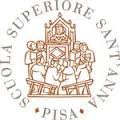International PhD Scholarships in Management Innovation, Sustainability and Healthcare in Italy | Scuola Superiore Sant'Anna
256 0 1 0
Σύγκριση
Προσθήκη στα αγαπημένα
Στοιχεία επικοινωνίας
Piazza Martiri della Libertà 24, 56127 Pisa, Italy
Institute of Management
Tel. +39 050883111
Tel. +39 050883111
Επιστημονικοί τομείς
- Επιστήμες διοίκησης (Οργάνωση & Διοίκηση)
Φορέας υποτροφίας
Καταληκτική ημερομηνία αιτήσεων
Λήγει: 18/05/2015
Περιγραφή
The International Ph.D. in Management is divided into two different curricula: "Innovation, Sustainability and Healthcare" and "Change and Complexity Management". Ph.D. students from both of them will follow the same lectures in Pisa for the first year. Students within the curriculum in "Change and Complexity Management" will follow the second year courses in L'Aquila.
The curriculum in Innovation, Sustainability and Healthcare deals with the most important management topics which characterize current research activities. Particular emphasis is given to:
- the management of innovation processes and the international competitiveness of firms, institutions, as well as local, regional and national systems;
- the management of sustainability in public institutions, private companies and wide territory areas specifically focusing on environment policies, renewable energy sources development, and quality evaluation of food and tourism industry chain;
- the management of healthcare, meant as the development of models and tools for governance, in order to support the subjects involved in the healthcare system in the process of management and innovation of social welfare assistance and performance evaluation.
The curriculum in Change and Complexity Management focuses on two main topics: disaster management and smart communities. These topics are both characterized by a wide complexity because of the high number of actors involved and the relevant effects that a good or wrong management can produce on society. A specific attention to leadership methods will be given in the “disaster management” course, while lessons on “smart communities” will move into methods of networking, participation and cooperation.


